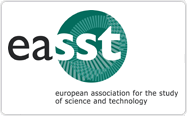Disentangling Transdisciplinarity
An Analysis of Knowledge Integration in Problem-Oriented Research
DOI:
https://doi.org/10.23987/sts.55219Abstract
Within the discourse promoting transdisciplinary research (TDR), also referred to as Mode 2 science, it is often claimed that scientifically coping with urgent life-world problems calls for interdisciplinary participatory research (or TDR), and that this represents a new mode of knowledge production. Although we look upon TDR as a fertile innovation, we have epistemological and methodological concerns in treating TDR as a (singular) new mode of knowledge production. Hence, our paper attempts to contribute to clarifying the meaning of TDR from an epistemological and methodological perspective. We develop a conceptual scheme for the analysis of knowledge production in problem-oriented research, which is subsequently applied to an empirical analysis of 16 transdisciplinary research projects. In our analysis, we focus upon forms of knowledge integration and participation. The results indicate that, from an epistemological point of view, TDR does not represent a specific mode of knowledge production, but a rather heterogeneous conglomeration of different research activities. In order to evaluate the epistemic potential of TDR, we conclude that it would be wise to disentangle it methodologically into various types of research objectives and related research instruments.





